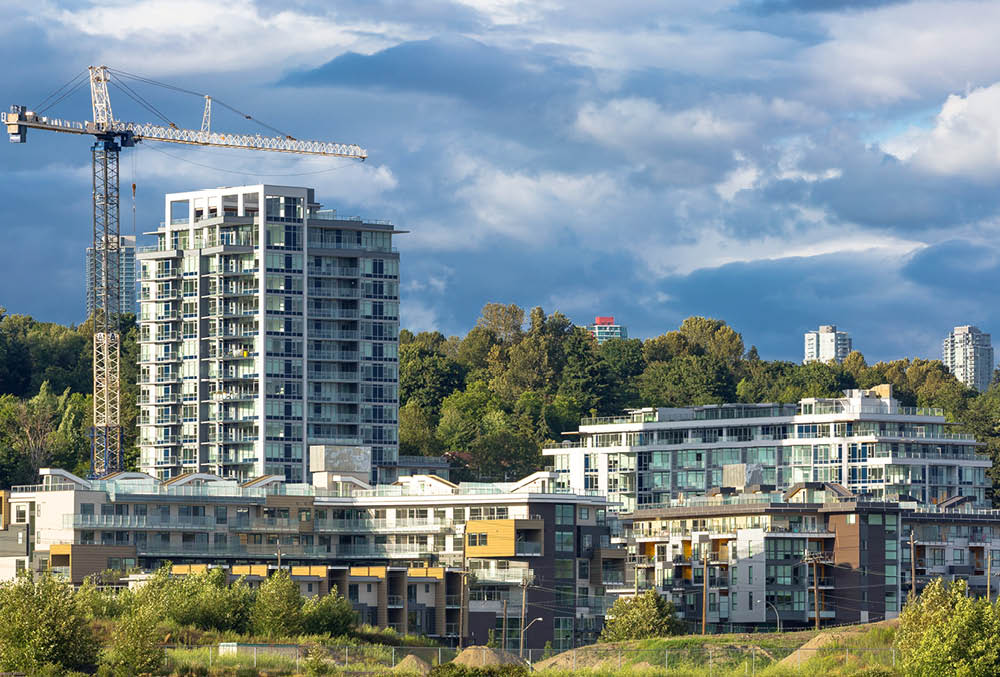Whether you’re an investor looking to develop a property, or a prospective buyer exploring housing options, zoning by-laws can play a large role in what you decide to build, buy, or develop. In this blog, we’ll explore what you need to know about zoning by-laws and how they can impact property value.
What is zoning?
Zoning refers to how land use and development are regulated. Cities, towns and municipalities will create zoning by-laws to ensure that any developments are aligned with the needs of the community, contribute to economic growth, and preserve the environment and natural resources. It’s a fine balance which is why zoning by-laws are important.
Why is zoning important?
When zoning is done well and implemented effectively, the result is communities that are functional, practical and liveable.
Here are some ways zoning by-laws can contribute to better communities:
 |
Maintain property valuesZoning by-laws ensure communities are favourable places for residents to live with access to amenities and resources. They also dictate what types of renovations and developments can be made to existing structures to maintain the feel and look of the community. |
 |
Support economic growthDesignating certain areas specifically for things like commercial and industrial development can drive business growth and attract new businesses without disrupting residential areas. |
 |
Protect and preserve landSafeguarding natural resources and spaces is an important aspect of zoning. Overdevelopment can have a negative impact on surrounding areas and cause flooding, drought, or reduce the habitat for wildlife. |
Why do we need zoning in real estate?
When it comes to real estate, zoning by-laws help residents, investors and developers understand how different areas of land can be used and developed, and for what purposes. Different areas of land will be designated for specific purposes, so it’s important to understand what the different designations are and how they can impact your real estate needs.
What are the most common zoning designations?
From agricultural spaces to vacant land and everything in between, there are countless zoning designations to help guide the development of cities and towns. Here are some of the most common zoning designations.
Residential |
ResidentialThis designation includes all the different spaces where residents can live and some small businesses. Examples: Townhouse/row house, condominium unit, co-operative housing, mobile home park, single-family detached |
Commercial |
CommercialCommercial spaces can come in many shapes and sizes with a focus on large businesses, retail and office spaces. Examples: Medical/dental building, large multi-tenant office building, restaurant, shopping centre, parking garage, office or retail space converted from a house |
Industrial |
IndustrialManufacturing plants and warehouses all fall under the industrial designation. This zoning classification is crucial as the activities from industrial sites may be disruptive or detrimental to residential areas. Examples: Mines, distillery/brewery, waste disposal site, recycling facility, lumber mill |
Mixed-Use |
Mixed-UseA cross between residential and commercial, the mixed-use designation allows residents to take advantage of living spaces with close proximity to commercial spaces. Example: Buildings with stores, restaurants or offices on the ground floor and apartments on the top floors |
In many cities, mixed-use zones are being used to increase housing options and add diversity to communities. Through a process called residential intensification, existing properties can be repurposed to fulfil different needs in the community.
How does zoning affect property value?
When buying a property or land, zoning by-laws can play a significant role in the overall value of the property. Residential and commercial zones tend to be in higher demand with a higher price tag because of the vast potential uses. The surrounding zones will also play a role in the value of property. For example, if you’re planning to purchase a commercial unit in an area designated for mixed-use, it will typically have a higher property value than a location in a highly industrial zone.
Typically, the value of a property will take into account the current status or zoning designation but there are cases where the property or land may be underutilized. An example of this situation would be a single-family dwelling on a large lot of land that can be replaced with row homes or a multi-family dwelling. Zoning by-laws will dictate how the land can be developed but the potential to develop the property can increase the overall value.
Zoning by-laws have an important role in the real estate landscape in shaping communities and fostering conscious development. If you’re considering how zoning could factor into your next commercial purchase or development project, MCAP’s Development Finance Group can help answer any questions you may have. Contact a member of the team to discuss your options today.




